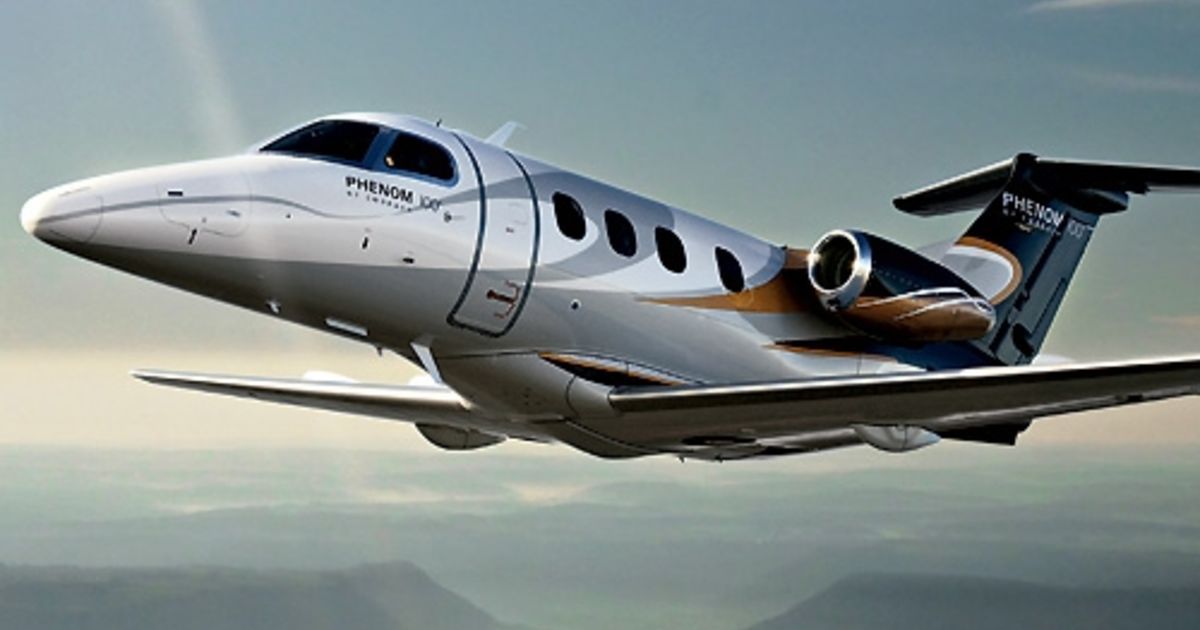RIO DE JANEIRO, BRAZIL – Millionaires and billionaires now all want their own jets mainly because of the risk of contagion in commercial aircraft, but are having increasing difficulty finding them.
Demand for private jets has increased so much in recent months that prospective buyers have to join queues that can last years.
The explanation for the warming of this market lies in the pandemic. According to companies in the industry, the health crisis has increased interest in business aviation among the super-rich, who wanted to continue their travel habits without exposing themselves to the risk of contamination.

The problem is that supply has not kept pace with the boom in demand. The recent disruption in global supply chains has affected aircraft production and maintenance due to shortages of key components and has caused some shipping to migrate to airports, pushing jets out of the business travel market.
Faced with shortages, millionaires competed for every jet for sale. Not just in Brazil, but all over the world.
Bruna Strambi, director of Líder, one of the country’s largest aviation companies, explains that the high demand is a global phenomenon, affecting aircraft purchases as well as charter, shared ownership, and outsourcing services.
The company is the exclusive agent for the HondaJet, a model manufactured by Honda that costs about US$6 million. Strambi says to expect a long queue if you want to purchase a new car, and deliveries are scheduled to begin in 2025.
Anderson Markiewicz, Líder’s sales director, has worked in the aerospace sector for 32 years and says he has never seen a scenario as heated as the one he is experiencing now.
Demand is so high that even the used market has increased. According to him, some aircraft that are a year or two old are more expensive than brand new ones because customers don’t want to wait until they get a brand new aircraft.
“Before Covid, several months would pass between the announcement of a [used] aircraft and the sale, sometimes more than a year. If someone advertises today, they’ll sell tomorrow. It’s a matter of hours, something impressive,” he says.
A 2021 study conducted by consulting firm Wealth-X found that Brazil is the country with the most private aircraft owners in the world after the United States. In the ranking, Canada is in third place, followed by Mexico and Germany.
Currently, there are over 16 thousand private aircraft in Brazil, including jets, airplanes, turboprops and helicopters. Considering only jets, the fleet grew by 8.5% between February 2021 and February 2022, from 680 to 738 units.
Some of the models most in demand by Brazilians are the Embraer Phenom 300, which costs more than US$7 million (R$32.4 million), and the King Air family of turboprops, which are in the US$7.5 million (R$37.1 million) range.
The strong market movement also helped boost Embraer’s cash flow. In 2020, the company sold 86 business jets, up from 93 in 2021, and is expected to deliver between 100 and 110 aircraft this year.
According to the company, executive aviation sales reached R$6.12 billion in 2021, representing 9% growth, driven by higher deliveries and higher prices. In 2022, the increase could be 18% year-on-year.
New billionaires have fueled demand
Paul Malick, president of Flapper, says you can wait up to a year to buy the most desirable aircraft, such as the Challenger 600. “That model is in high demand because it has a large cabin, can seat up to 12 passengers, and you can fly from Brazil to Europe with just one stop,” he says.
Malick also attributes the increase in demand for business jets to the pandemic, but doesn’t limit himself to that.
“Another reason is the simple fact that in the last two years, the number of millionaires and billionaires has increased,” he says. “For example, we have a lot of clients who have just gone public and become CEOs. [These are people who] have been working for the last ten, 15 years and now want to enjoy life more. This has certainly had a positive impact on the sector,” he adds.
He says Flapper’s clients are owners of small or mid-sized businesses (15 to 40 employees) but with high profitability, such as medical practice clinics and financial market companies.
Amid the boom in business aviation, Malick has also seen customers regret their decision. He says some didn’t realize the cost of maintaining a small jet – which is around R$100,000 per month – and are now taking a step back.
“Some aircraft are being sold again, but that’s not yet a trend that will affect the market.
Demand is likely to remain high
For the executive, the high demand, low supply scenario is likely to continue for another three years. One of the reasons for this is the flexibility that business aviation offers. After choosing this service, customers rarely return to commercial routes.
According to data from the National Civil Aviation Agency (Anac), compiled by the Brazilian General Aviation Association (Abag), there are 491 public airfields in Brazil, while the number of private airfields is almost six times higher, at 2,675.
Marcus Matta, CEO of Prime You, also believes the market will continue to grow, but is betting on an adjustment in aircraft supply during 2023.
The company he founded is primarily in the segment of shared ownership of airplanes, helicopters and other luxury items – a model he expects to boom for a longer period of time.
Matta says the shortage of readily available aircraft has led many people to reconsider exclusive ownership and consider the sharing model.
“If we look at a stronger market – like the U.S., which has a huge number of aircraft – we see that this system has grown the most,” he says.

